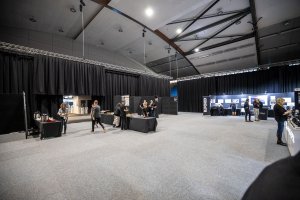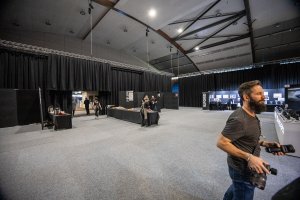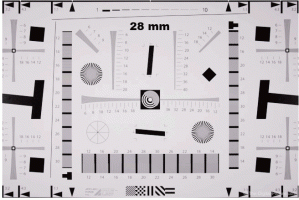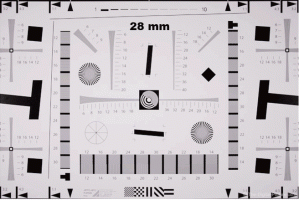Canon do actually produce a small but expanding range of budget lenses in RF mount, e.g. 35mm F1.8 macro, 50mm F1.8, 85mm F2 macro, 24-105mm F4-7.1, 600mm F11, 800mm F11, 24-240mm F4-6.3. All of these have had good reviews. I own the 800mm F11 and a friend has the 600mm F11, which both open up new fields of photography for those on a tight budget.
Each lens purchase needs to be considered on its own merit. Sometimes it's better to splash out on the RF exotica, other times it's better to go for the budget RF optic, or to get an EF version and use it with the EF-RF adaptor. Ergonomically, the EF lenses are actually better designs, because their RF replacements have the focus and zoom rings too close together and use the same texture of rubber, making it difficult to distinguish between the zoom and focus rings by feel, when the camera is at the eye.
I currently own an EF 100mm F2.8L macro, and have considered the new RF version, but I don't think the 1.4x magnification or the aspherical control are worth the extra expense. My EF lens is now 10 years old, very heavily used and suffering from intermittent problems with AF and OIS, so it's due for replacement. But I'm more likely to buy the non-L 85mm macro, which is optically excellent, or to get another EF 100mm F2.8L macro, than to spend £1500 on the RF 100mm macro.
Personally, I would not call the 35mm F1.8 macro or 85mm F2 macro "budget" lenses, even if they are much cheaper than an L series lens. The 35mm goes for over A$700, and the 85mm for over A$1,000. Further, I don't think they look good value when you put them up against lenses like the Sony 35mm f/1.8, Samyang 35mm f/1.8, Nikon Z 35mm f/1.8 S (although admittedly the Nikon is a higher price bracket), Sony 85mm f/1.8, Samyang 75mm f/1.8, Samyang 85mm f/1.4 and Nikon Z 85mm f/1.8 S, and I'd even throw in the old EF 85mm f/1.8). From everything I have seen and read, I would rate the two Canon RF lenses to be the weakest lenses of that group (optically and at the weak end for AF), with the possible exception of the EF 85mm f/1.8 although I still think it's possible I prefer the images it produces over the RF 85mm f/2 IS even if the RF lens is sharper. I also wouldn't call the RF 85mm f/2 IS small or light for what it is. I guess to be fair though, the Canon lenses are the only ones in that group with IS, and no doubt their close focus ability will be useful to some people.
The RF 50mm f/1.8 is in the budget category I guess, but even so it's twice the price of the EF 50mm f/1.8 STM and from everything I've seen and read, apart from the price the differences seem minimal. And again, if you consider it against the 50mm-ish lenses for the Sony and Nikon systems, there are options there for not a whole lot more money which are much more attractive to me.
The 600mm F11 and 800mm F11 are interesting options for anyone looking for that sort of reach, and I think it's probably fair to call them budget lenses once you think about the cost of getting that sort of reach with other lenses. That said, the RF 600mm is about A$1,300 and the RF 800mm is about A$1,700, while a Sigma 150-600 f/5-6.3 OS C for EF mount goes for under A$1,350. The Sigma is significantly bulkier but it also has a wider maximum aperture and gives you zoom flexibility, so I can see some people preferring it to the RF primes, but equally I can see other people preferring the RF lenses for their size and weight.
As for the 24-105mm F4-7.1 and 24-240mm F4-6.3, I have never looked closefly at them so I won't say anything about them.
Anyway, all of that to say that I struggle to see that Canon's "budget" RF lenses, and particularly the lenses which seem to me to be most likely to be useful to a large number of photographers, namely the 35mm F1.8 macro, 50mm F1.8, 85mm F2 macro, are great value. They are part of the reason that, personally, I don't see good value in the RF system.






